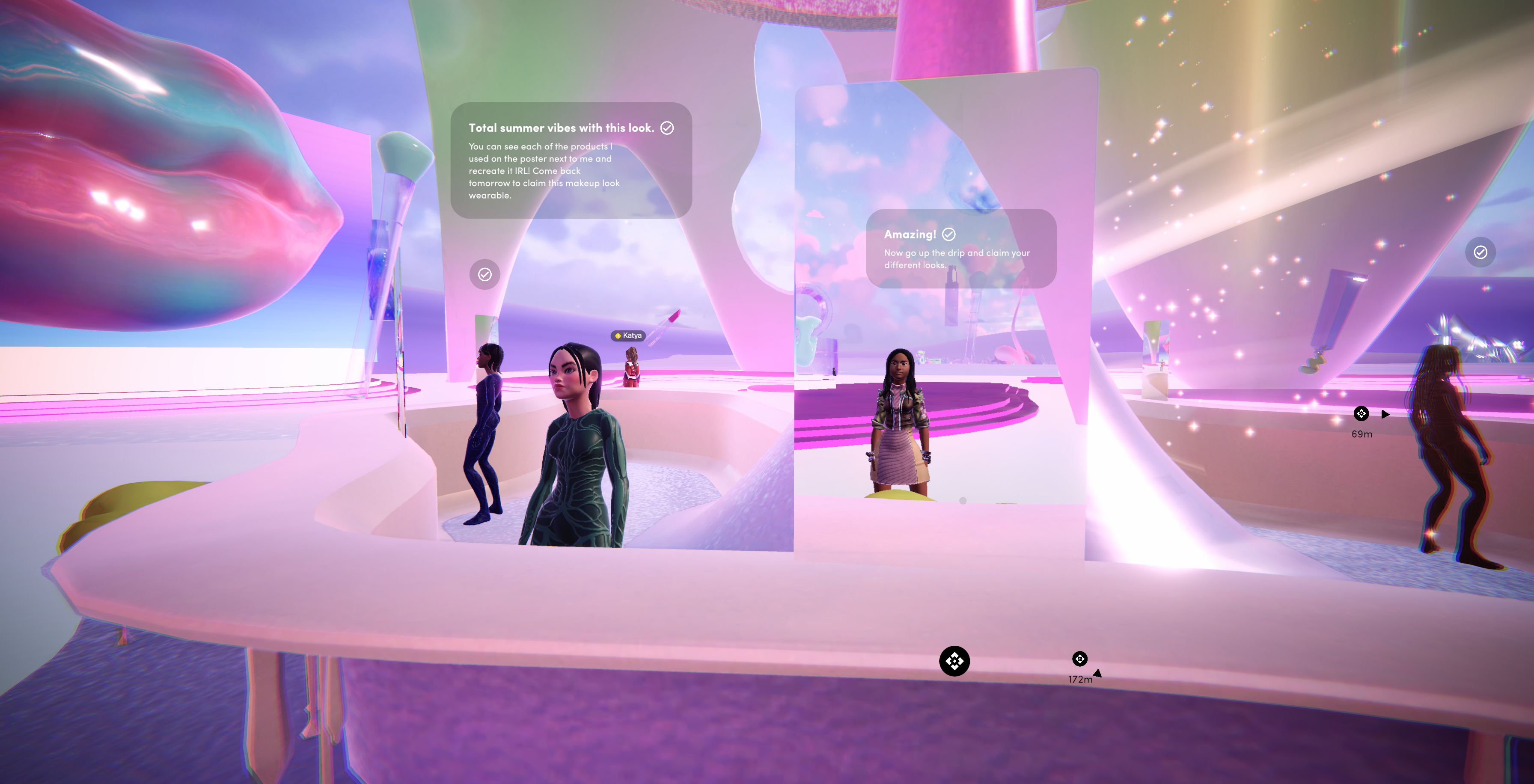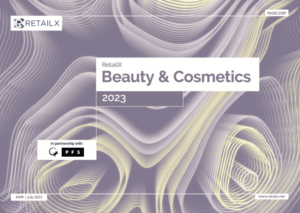Disney, Microsoft and Meta have been laying off staff in their metaverse divisions but there is no slow down among beauty & cosmetics companies.
L’Oréal, which is becoming a beauty tech company as well as a beauty & cosmetics company, has made its first venture capital investment in the metaverse space. The French company has invested in building platform and NFT marketplace Digital Village as part of a $4mn funding round.
Other brands in the beauty & cosmetics sector are launching virtual experiences to raise awareness of their products among potential new customers. Many of these are temporary being pop-up stores, part of larger industry-wide events or games within multi-player platforms.
Consumers are embracing these new experiences and shopping within them as well. In 2022, an estimated $1bn was spent in virtual stores and the metaverse across all product categories, according to Coresight Research. The company estimates that sales will more than double in size every year until 2027.
Korean skincare brand Laneige is among the latest to launch in the virtual beauty & cosmetics space. Its virtual store enables visitors to explore the brand through a mix of digital entertainment, videos, quizzes and explanations of key product ingredients. Visitors can add items to their basket in the store to buy direct from the brand.
Obsess, the technology company behind Laneige’s virtual store, has discovered that visitors to one global consumer goods brand spent ten times the amount of time in a virtual store than on the brand’s traditional ecommerce site, while visitors to a leading luxury brand’s store were 112% more likely to make a purchase.
Cosmetics giant Shiseido is already a convert to virtual stores and the metaverse. The Japanese company has found that consumers are more willing to engage with brands in such settings than on traditional social platforms.
Shiseido’s Nars Color Quest game on the Roblox gaming platform attracted 41.9 million visitors between July and October 2022. The game itself used different islands corresponding with makeup colours with non-player characters that gamers could interact with to unlock special abilities. Gamers could also earn badges and use virtual currency to buy merchandise and virtual looks.
Roblox is not the only platform attracting beauty & cosmetics brands. Metaverse Beauty Week 2023 played out across Roblox, Decentraland and Spatial. Brands also used it cross between virtual space and the real world highlighting how the metaverse can work in parallel with existing channels.
For example, Glossybox dropped parcels from the sky in Decentraland and scattered Glossyboxes across the scenery, giving consumers the chance to win a free physical Glossybox. According to the company, 49% of Glossybox metaverse attendees clicked through to the Glossybox site. Ahead of the event, the company put 200,000 inserts into customer orders in the UK in order to promote the event.
Metaverse platforms and massively multiplayer online role-playing games (MMORPG) realise the market appeal of their brands, so while beauty brands are finding their space on the platforms, the platforms are merchandising outside of their virtual worlds. For example, Epic Games has partnered with Revolution Beauty to launch Revolution Beauty x Fortnite, marking the gaming platform’s first-ever beauty collaboration.
The range consists of 27 products including colour cosmetics and skincare which have been inspired by the Fortnite game and characters within it. As such, the collection is appealing to players – Fortnite has 500 million+ registered accounts worldwide – as well as Revolution Beauty’s customer base.
This is part of a wider feature authored by Emma Herrod, which appears in the RetailX Beauty & Cosmetics 2023 report.
Download it in full to discover the extent to which consumers are shopping online around the world, developments over the last year and the trends that will continue to drive beauty ecommerce forward.










